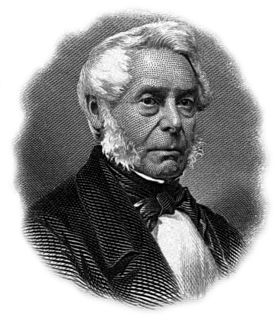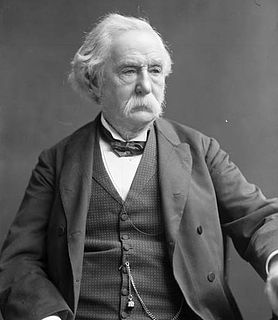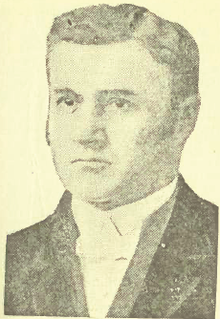Allan Austin Lamport,was mayor of Toronto,Ontario,Canada,from 1951 to 1954. Known as "Lampy",his most notable achievement was his opposition to Toronto's Blue laws which banned virtually any activities on Sundays. Lamport fought to allow professional sporting activities on Sundays. He won the 1954 election,but resigned after six months to become vice-chairman of the newly formed Toronto Transit Commission (TTC). Lamport later returned to City Council and made headlines for his opposition to Yorkville's hippies in the late 1960s.

Henry Sherwood,was a Canadian lawyer and Tory politician,involved in both provincial and municipal politics. Born into a Loyalist family,he studied law and was called to the bar of Upper Canada in 1828. He was appointed Queen's Counsel on January 23,1838. He served as Mayor of Toronto,Solicitor-General of Canada West (1842) and as Joint Premier of the Province of Canada. He was also a member of the Orange Order in Canada. He was born in Augusta Township,Upper Canada,and died in Bavaria in 1855 while travelling in Europe.

James George Currie was speaker of the Legislature of Ontario from December 21,1871 to March 29,1873 and served as Liberal MLA for Welland from 1871 to 1879. His standing committee service included those for Private Bills,Railways,Privileges and Elections,and Standing Orders.

David Edgar Jamieson was a physician and politician in Ontario,Canada. He was speaker of the Legislature of Ontario from 1915 to 1919 and served as Conservative MLA for Grey South from 1898 to 1919 and from 1923 to 1926.

William Hamilton Merritt was a businessman and politician in the Niagara Peninsula of Upper Canada in the early 19th century. Although he was born in the United States,his family was Loyalist and eventually settled in Upper Canada. Merritt fought in the War of 1812,was captured by the invading American forces,and held as a prisoner of war. After the war,he returned to the Niagara region and began a career in business. He was one of the founders of the Welland Canal.

William Benjamin Robinson was a fur trader and political figure in Upper Canada.

Thomas Coltrin Keefer CMG was a Canadian civil engineer.
The 1974 Toronto municipal election was held on December 2,1974 in Metropolitan Toronto,Ontario,Canada. Mayors,controllers,city councillors and school board trustees were elected in the municipalities of Toronto,York,East York,North York,Etobicoke and Scarborough.

Nathan Phillips was a Canadian politician who served as the 53rd mayor of Toronto from 1955 to 1962. A lawyer by training,Phillips was first elected to Toronto City Council in 1926. He is the city's first Jewish mayor,ending an unbroken string of Protestant mayors.

Arthur Radcliffe Boswell was a Canadian lawyer and politician,including as Mayor of Toronto.

John Hutchison was a Canadian businessman,politician,and mayor of Toronto in 1857. He was born in Scotland and immigrated to Montreal in 1828. He moved to Toronto in 1847 and opened a merchant business. He was also a director on various Toronto public works projects. He was elected as an alderman to Toronto City Council in 1852,but resigned when the council refused to censure the city's mayor. He was again elected to the council in 1856 and was elected the city's mayor the following year. Hutchison's mayoralty occurred during an economic recession and his term was characterized by withdrawing funding from railway projects. The recession caused his business to become bankrupt and he did not run for a council seat upon the end of his mayoral term. Sources differ on when and where Hutchison died;one source says he died in Toronto a few years after becoming mayor,while an obituary states that he returned to Montreal when his term ended and died in Quebec in 1863.

James Edward Smith was a Canadian businessman and politician who served as the mayor of Toronto. He was born in London,England,and moved to Toronto,Canada,as a child. He operated a grocery business and was involved in real estate and insurance. He was elected to the Toronto City Council in 1857,and the council elected Smith as the city's mayor in 1867. He oversaw the Canadian Confederation celebrations and was reelected in 1868. He did not want to be considered for a third term,but remained on the council until 1870. He continued operating his businesses and was a collector of customs at the port of Toronto until a scandal precipitated his retirement in 1879. He died in Toronto on March 9,1892.

Warring Kennedy was a Canadian politician and businessman who served as Mayor of Toronto from 1894 to 1895. He was born and educated in Ireland and immigrated to Toronto in 1857. He opened a dried goods company and participated in political organisastions and Methodist conferences. He was elected as alderman in the Toronto City Council,representing St. John's Ward,in 1871. He was unsuccessful in his first run for mayor in 1877,but was successful in his second attempt in 1894 and his reelection the following year. Kennedy's terms as mayor were negatively affected by an economic downturn in Toronto and allegations of corruption within the Toronto administration,including a report that accused Kennedy of improper acts. His company went bankrupt in 1895 and Kennedy left municipal office. He worked as an insurance agent and sat on the boards of various philanthropic organisations. He died in Toronto and is buried at Mount Pleasant Cemetery.

George Thomas Marks was a businessman and politician in Ontario,Canada. He was mayor of Port Arthur,Ontario from 1893 to 1899.
Municipal elections were held in Toronto,Ontario,Canada,on December 1,1958. Four year incumbent mayor Nathan Phillips won reelection against Controller Ford Brand,who was supported by the Co-operative Commonwealth Federation and Toronto Labour Council,and Controller Joseph Cornish.
Richard M. Erdall was an American politician. He was the 40th mayor of Minneapolis,Minnesota,serving for one day,on December 31,1973. He is the shortest-serving mayor of the city. Before that,he was alderman for the City's 13th Ward and the president of the Minneapolis City Council. In 1965,Erdall was elected to the Minneapolis Park Board. On January 13,1967,he was appointed 13th Ward alderman to fill the vacancy caused by the election of John W. Johnson to the Minnesota legislature. Erdall was elected to the council in 1967 and reelected in 1969 and 1971. He was elected president of the city council on July 7,1969,and reelected in 1971. On August 13,1971,Erdall was ousted as president when a member of his caucus sided with the DFL to elect himself president. On January 28,1972,Erdall was restored to the presidency,which he held until January 2,1974. He was defeated for reelection as alderman in November 1973. The opportunity to serve as mayor arose because the incumbent mayor,Charles Stenvig,a former police inspector who had also been defeated for reelection,resigned on his final day in office to become acting Chief of Police.
Patrick Joseph Larkin was a Canadian ship's captain,businessman and politician.
John James Hoellen Jr. was an American politician who served as alderman of Chicago's 47th ward from 1947 to 1975. His father,John J. Hoellen Sr.,had served as alderman of that same ward from 1925 to 1933. Like his father,Hoellen was a Republican and at the time of his he left office,he had been the sole Republican member of the Chicago City Council.

Elliot M. Sutton was a Vermont businessman and politician. A Democrat,among the offices in which he served was mayor of Burlington (1898-1899) and member of the Vermont Senate (1902-1904).

John Jacob Withrow was a Toronto businessman and politician. He proposed the first edition of the Canadian National Exhibition and organised the annual event for several years.















